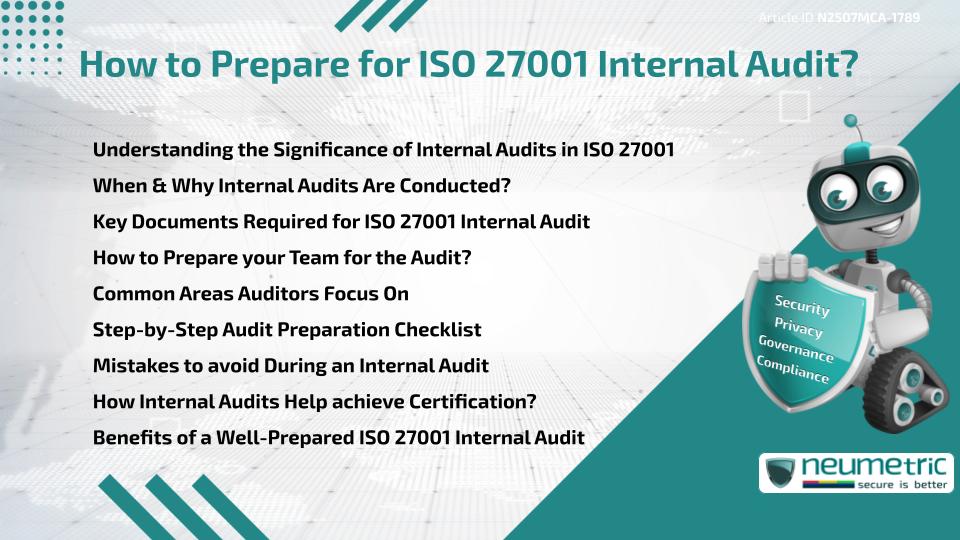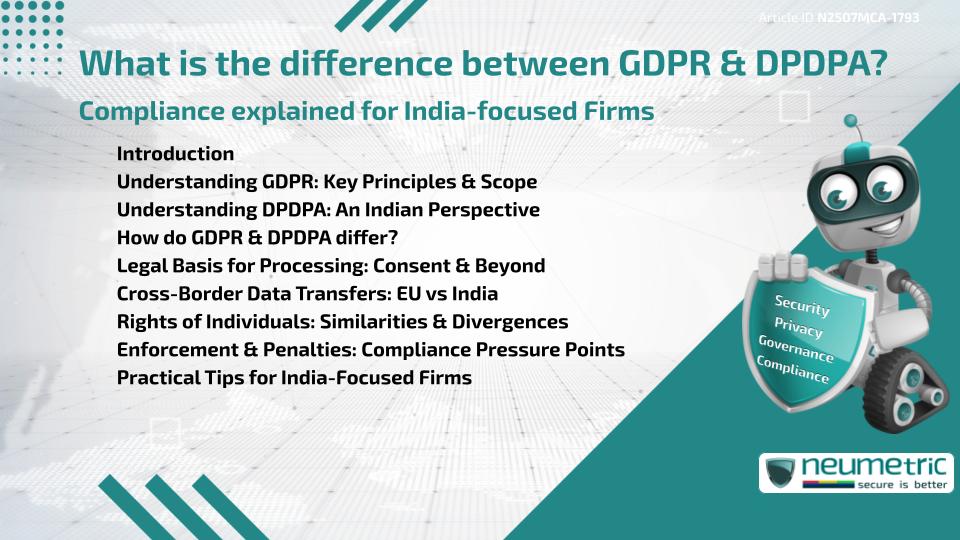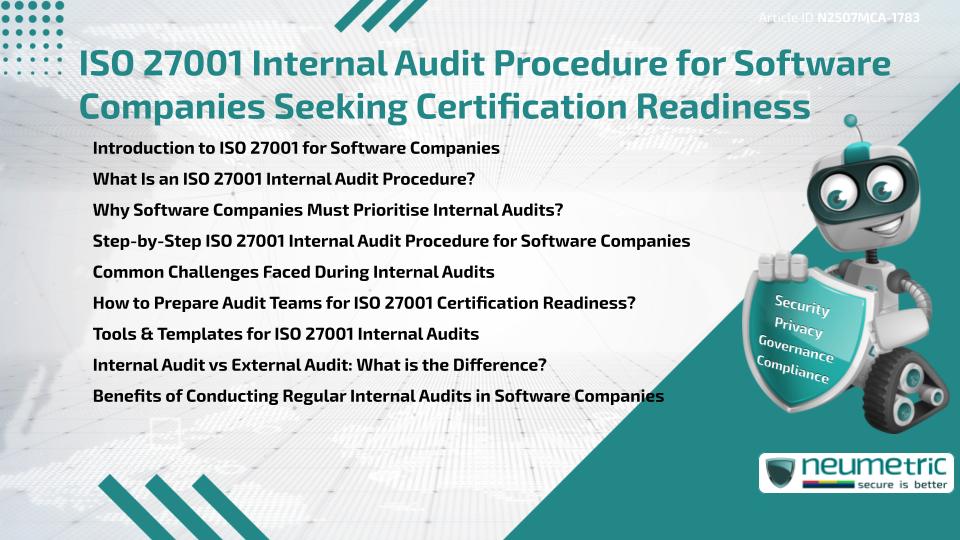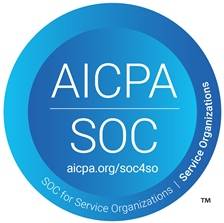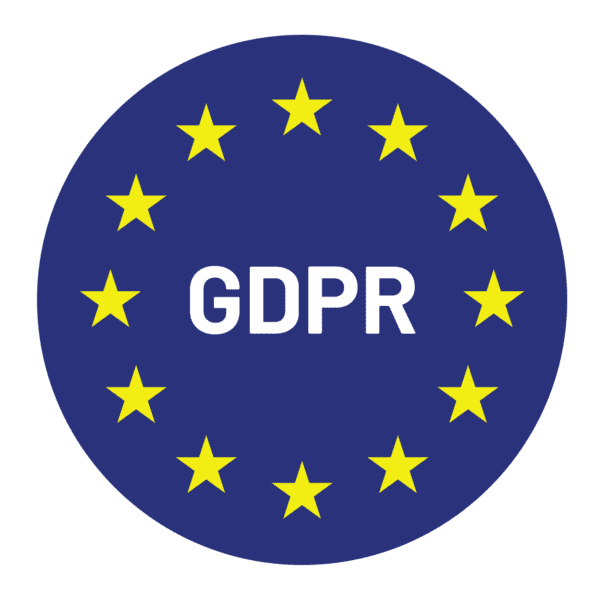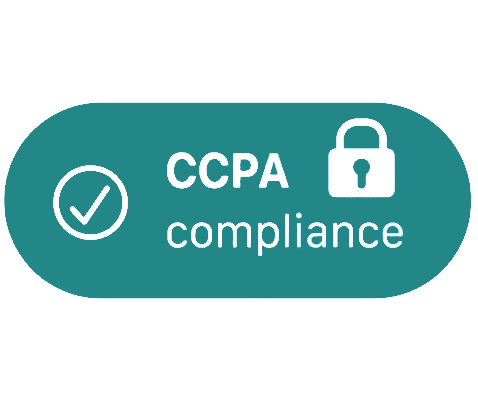
CCPA Compliance Certification Simplified
Why Is CCPA Compliance Worth Your time?
Compliance helps protect both consumers and businesses from harm by ensuring that companies are using consumer data properly. It also helps protect consumers from personal information being accessed without their permission or knowledge (such as when hackers break into servers).
Enquire for CCPA Compliance

What is CCPA Compliance?
The California Consumer Privacy Act [CCPA] is a law that was enacted in 2018 to protect the privacy of California residents. The law gives consumers the right to know what personal information is being collected about them, the right to have that information deleted, and the right to opt out of the sale of their personal information.
To comply with the CCPA, businesses must provide California residents with a notice of their right to opt out of the sale of their personal information. They must also provide a way for California residents to opt out of the sale of their personal information. businesses must also take steps to protect the personal information of California residents from unauthorized access, use, and disclosure.
Steps involved to obtain CCPA Compliance
Assessment & Identification
Key resource planning for certification
Auditor & Audit handling
Benefits of Neumetric's CCPA Compliance Service
- 1.Risk Assessment: We can perform a risk assessment of your organization, including an analysis of your compliance program. This will help you identify ways to improve the efficiency of your CCPA program and reduce your overall risk.
- 3.Compliance Management: We have a team of experienced compliance professionals who can provide ongoing support for your organization, including: Our team will perform a compliance audit of your CCPA program to ensure that it is compliant with all requirements. We can also provide you with an action plan for improving your program and making it more efficient.
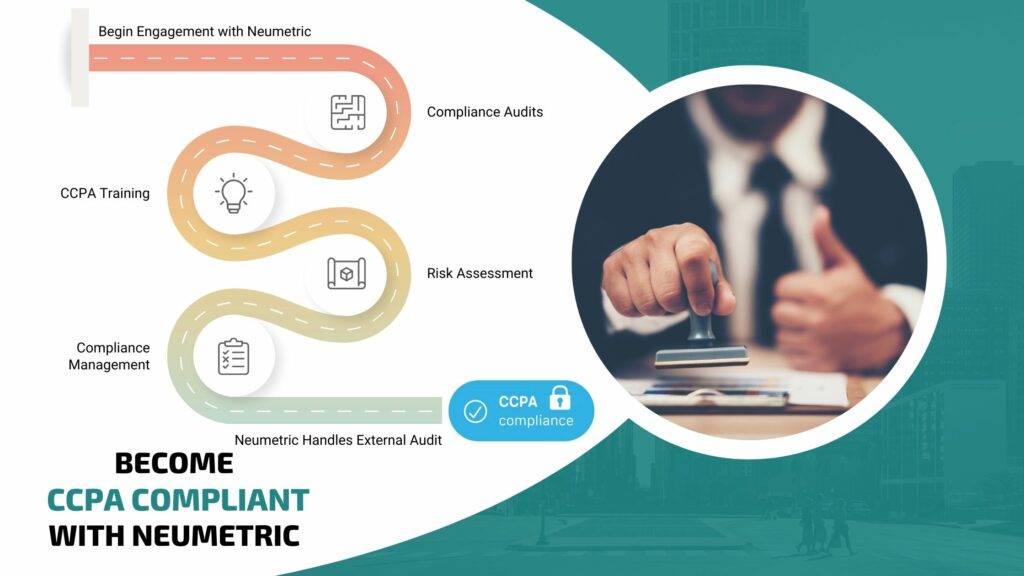
- 2. CCPA Training: Our trainers have years of experience in CCPA, and we can help you create a training program that meets all state guidelines.
- 4. Compliance Audits: We have a team of experienced compliance professionals who can provide ongoing support for your organization, including: Our team will perform a compliance audit of your CCPA program to ensure that it is compliant with all requirements. We can also provide you with an action plan for improving your program and making it more efficient.
- 5. Compliance Audits: We can assist you with your compliance audit and help you understand where you’re at relative to the requirements.
Our clients























Knowledge Hub
Other InfoSec Services
ISO 27001 Certification
ISO 27001 Certification Service will help you implement the necessary frameworks to make you ISO compliant and obtain ISO 27001 Certification.
SOC 2 Report
We will implement all 5 trust Principles at your Organisation & help you become SOC 2 Compliant in a few months & get your SOC 2 Report from the best Auditors.
EU GDPR Compliance
EU GDPR Compliance Service will help you implement all steps and frameworks in your organisation to become EU GDPR compliant in just a few months.
Frequently Asked Questions
The California Consumer Privacy Act [CCPA] is a new law that gives consumers the right to know what personal information is being collected about them, the right to have that information deleted, and the right to opt out of its sale. It also imposes new obligations on businesses to protect consumers' personal information.
Neumetric's CCPA Compliance Process takes 6 months
The California Consumer Privacy Act of 2018 applies to any business that collects personal information from individuals in California. If you have the personal information of California residents, you must comply with the CCPA.
If you are a business that does not have a physical presence in California, but your website or app offers services to California consumers, then your company also needs to comply with the CCPA.
The short answer is no. GDPR stands for General Data Protection Regulation, while CCPA stands for California Consumer Privacy Act. While these two laws are similar in that they both require companies to disclose more information about how they handle personal data, they differ in a number of important ways.
For example, the GDPR applies to all businesses that process data of EU citizens—not just those based in the EU. The CCPA only applies to companies with annual gross revenue of more than $50 million, or those which have been doing business in California for more than 12 months.
GRC Ecosystem
- Document Management
- Audit Management
- Risk Management
- Vulnerability Management
- Inventory Management
- Compliance Management
- Continuity Management
- Incident Management
- Education Program
Technical Security
Company
























